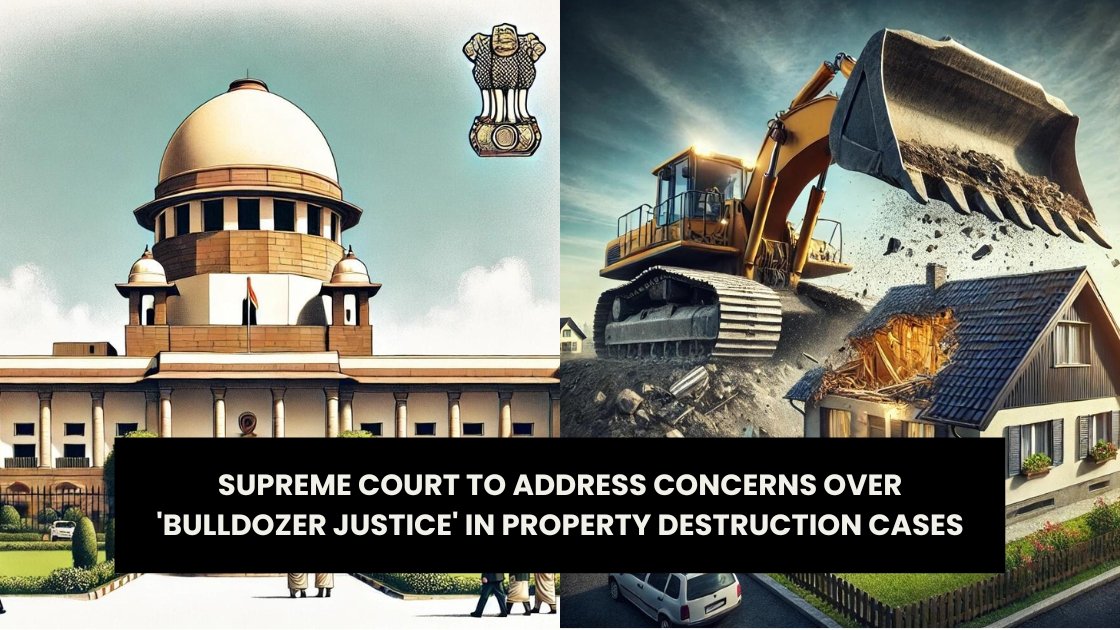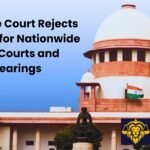Supreme Court to Address Concerns Over ‘Bulldozer Justice’ in Property Destruction Cases
In a critical judicial development, the Supreme Court of India has taken up the task of examining the controversial practice of demolishing the properties of individuals accused of criminal activities. The issue at hand, which has been dubbed ‘bulldozer justice’, involves local governments taking extrajudicial actions, purportedly as a deterrent or punitive measure. This practice has ignited a heated debate on the legal and moral boundaries of such actions.
Urgent Judicial Review Prompted by Citizen Petitions
The matter came to the forefront of the national legal stage due to two petitions filed by individuals who have suffered directly from these government actions—Rashid Khan from Rajasthan and Mohammad Hussain from Madhya Pradesh. These petitions challenge the constitutionality and legality of destroying properties as a form of punishment or deterrent without a court’s verdict.
Advocated by Senior Advocate CU Singh and Advocate Fauzia Shakil, the petitions highlight a crucial plea for judicial intervention. The Supreme Court, acknowledging the urgency and seriousness of the allegations, scheduled an expedited hearing. Justices BR Gavai and KV Viswanathan, recognizing the broader implications of the petitions, agreed to hear the case on September 2.
In-depth Examination of Petitioner Experiences
Rashid Khan, a 60-year-old auto-rickshaw driver from Udaipur, Rajasthan, detailed a harrowing experience in his petition. His home was razed on August 17, 2024, following communal unrest in Udaipur, which erupted after a deeply unfortunate incident where a Muslim schoolboy allegedly stabbed a Hindu classmate, leading to the latter’s death. The district administration, under the pretext of a crackdown on illegal constructions, demolished Khan’s house citing a prohibitory order. Khan, whose son was implicated in the stabbing, asserts that the action taken against his property was without due process, carried out with malicious intent, and reflects a misuse of power under the guise of maintaining public order.
Mohammad Hussain’s case from Madhya Pradesh presents a similar narrative of government overreach. His property, which included both his home and his shop, was demolished by state authorities who claimed they were targeting illegal activities. However, Hussain argues that these actions were taken without any judicial proceedings or convictions, highlighting a disturbing trend of extrajudicial punishments enacted by state authorities under dubious legal pretenses.
Wider Legal Challenge and Community Implications
These individual cases are connected to a broader legal challenge previously initiated by Jamiat Ulama I Hind, which focuses on similar property demolitions in Haryana’s Nuh district. These actions were taken after communal violence between Hindu and Muslim communities, where properties belonging to Muslims were disproportionately targeted. This has raised significant concerns about the potential communal bias and misuse of power in administrative actions.
Potential Legal and Ethical Implications
The Supreme Court’s decision to review these cases is not just about individual grievances but also about setting a legal precedent that could redefine the boundaries of state power in India. The court’s ruling could clarify the extent to which state and central governments can go in using property destruction as a punitive measure against accused individuals without crossing the lines set by the Indian Constitution.
Legal experts and civil rights advocates are closely watching the case, as it involves fundamental questions about the rule of law, the rights to fair trial and due process, and the potential for abuse of power by local governments. If the court finds these actions unconstitutional, it could lead to significant changes in how local authorities are allowed to handle cases involving accused individuals, especially in sensitive communal contexts.
Societal and Governance Repercussions
Beyond the legal ramifications, the Supreme Court’s handling of this case will also have deep societal implications. It tests the resilience of India’s democratic institutions against the misuse of power and examines the protective measures against potential government overreach. It also touches upon the sensitive issue of communal harmony in India, highlighting the need for fairness and justice that transcends community lines.
As the nation awaits the Supreme Court’s decision, the broader implications for governance, justice, and human rights continue to stir discussions and concerns among the public and policymakers alike. The outcome of this case could significantly impact how justice is administered in India, especially concerning the powers of local governments and their accountability in a democratic setup. It underscores the necessity of maintaining a delicate balance between law enforcement and the protection of civil liberties in a complex, diverse society like India.



